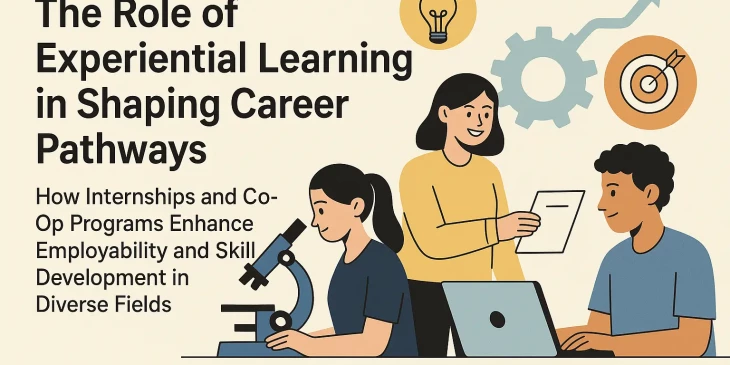The Role of Experiential Learning in Shaping Career Pathways
In today's competitive job market, having a strong educational background is not enough to secure a desired position. Employers are increasingly seeking candidates who possess practical experience and skills that can only be gained through direct involvement in their respective fields. This is where experiential learning plays a crucial role, particularly through internships and co-op programs.
Experiential learning is a hands-on approach that allows students to engage in real-world situations, thereby enhancing their understanding and skills. Internships and co-op programs provide invaluable opportunities for students to apply theoretical knowledge in practical settings, bridging the gap between academic learning and professional practice.
Enhancing Employability
One of the primary benefits of internships and co-op programs is the enhancement of employability. According to various studies, candidates with relevant experience are often preferred by employers over those without. Participating in these programs allows students to:
- Develop Industry-Specific Skills: Students gain hands-on experience and learn specific skills that are directly applicable to their future careers.
- Build a Professional Network: Working alongside industry professionals helps students establish connections that can lead to job opportunities and mentorship.
- Gain Confidence: Real-world experience boosts confidence, making students more prepared for job interviews and workplace challenges.
Skill Development Across Diverse Fields
Experiential learning is not limited to specific industries; it spans across diverse fields such as business, engineering, healthcare, and the arts. Each discipline offers unique opportunities for skill development:
- Business: Internships in marketing, finance, and management provide practical insights into market trends and business operations.
- Engineering: Co-op programs allow engineering students to work on actual projects, enhancing their technical skills and problem-solving abilities.
- Healthcare: Interning in hospitals or clinics gives students a chance to apply their medical knowledge while interacting with patients.
- The Arts: Creative internships in fields like graphic design and film production help artists hone their craft while collaborating with professionals.
Real-World Challenges and Critical Thinking
Experiential learning encourages students to tackle real-world challenges that cannot be simulated in a classroom. This exposure develops critical thinking and adaptability—skills that are essential in any career. Students learn to:
- Analyze Situations: Internships require students to assess problems and devise effective solutions in real-time.
- Work in Teams: Collaborating with others fosters teamwork and communication skills, vital for any professional environment.
- Receive Feedback: Constructive criticism from supervisors helps students refine their skills and improve their performance.
Conclusion
In conclusion, experiential learning through internships and co-op programs significantly enhances employability and skill development across various fields. By participating in these programs, students not only gain practical experience but also prepare themselves for the challenges of the workforce. As we move further into 2025 and beyond, the importance of experiential learning will continue to rise, making it an essential component of any educational journey.



Leave a Comment
To post comment, please